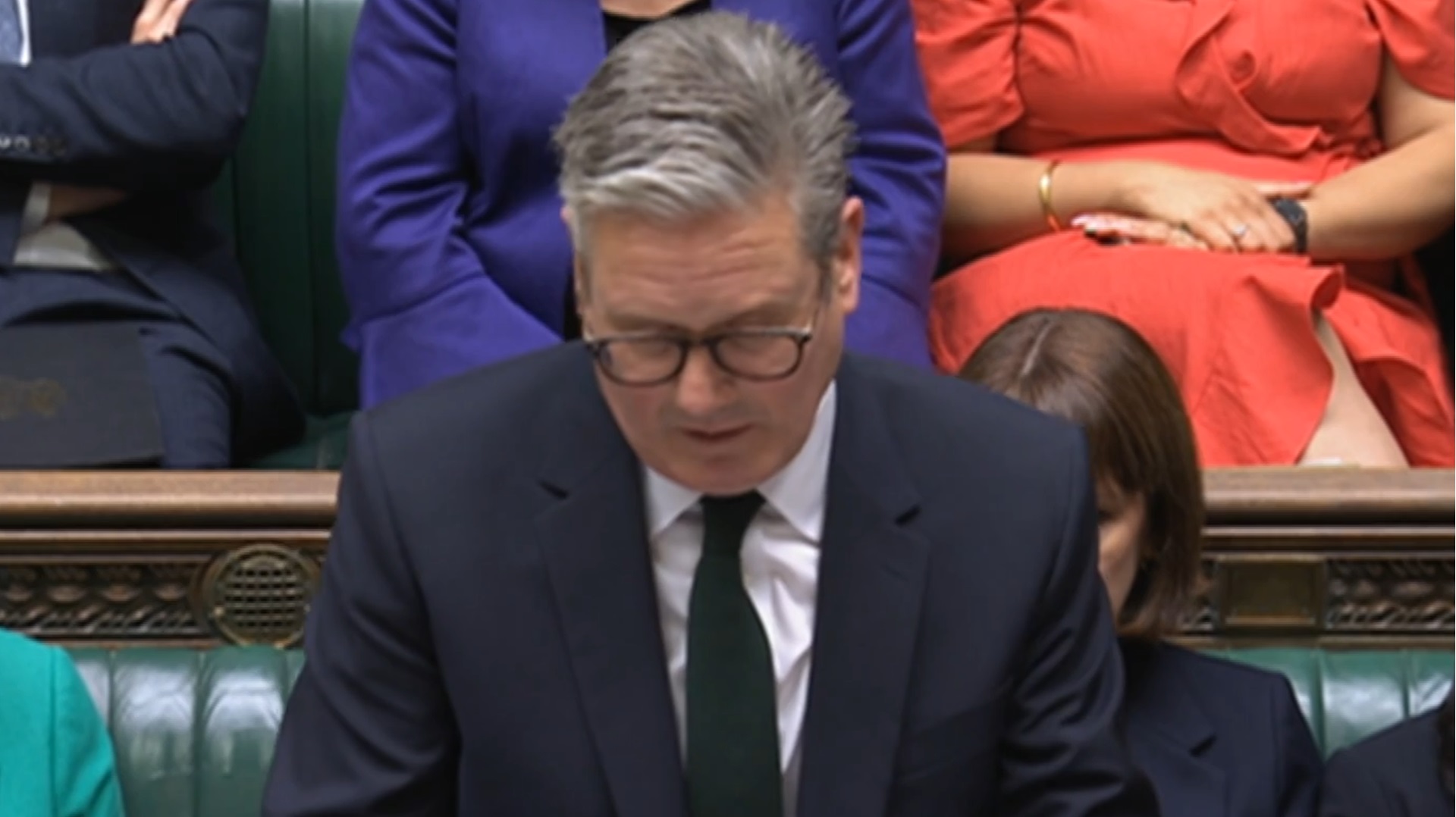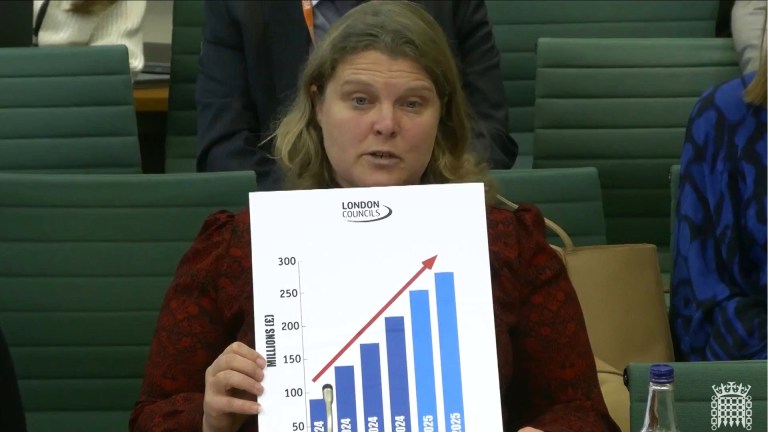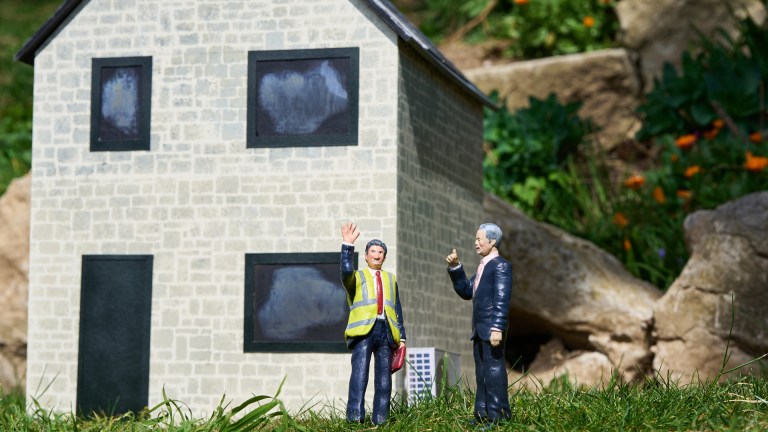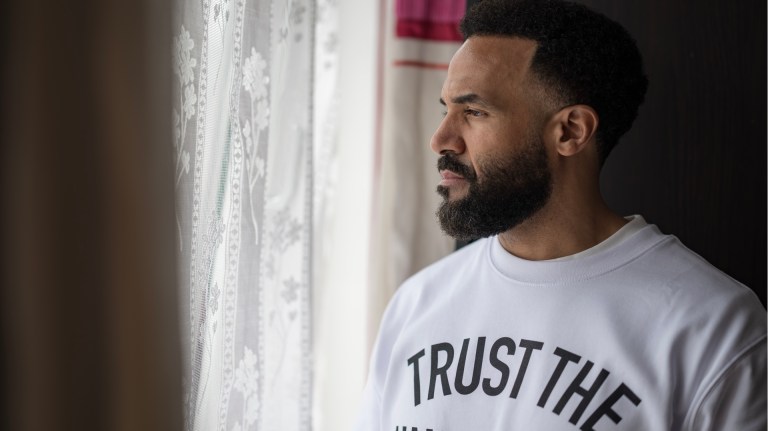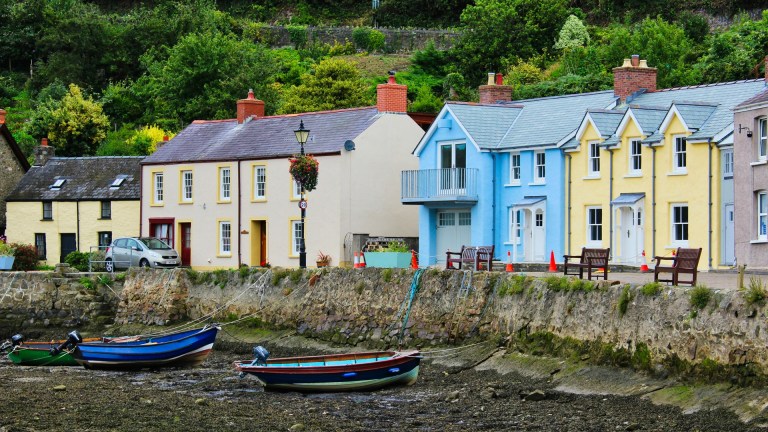“We will also reform the construction products industry that make this fatal cladding so homes are made of safe materials.”
He added: “A safe and decent home is a human right and the provision of that right should never be undermined by the pursuit of greed.”
Thousands of buildings in England still have unsafe cladding on them.
Government figures show work is yet to start on half the 4,630 residential buildings over 11 metres identified as having unsafe cladding. Remediation works have been completed on only 1,350 buildings – less than a third.
That’s despite some progress from the Conservative government to protect some leaseholders with buildings over 11 metres in height from costly repairs. The previous government also took legal action against developers of one block in April to force them to carry out works.
But the nightmare of living in fire-risk buildings is still a reality for thousands of people around the UK.
Advertising helps fund Big Issue’s mission to end poverty
Neera Soni, 68, lives in King Edward’s Wharf in Birmingham city centre, which has multiple fire safety defects but where no work has started yet to resolve external issues.
She told the Big Issue that the Grenfell Tower Inquiry needs to raise awareness of the ongoing crisis as well as delivering justice for bereaved families and survivors.
“I’m glad the report is coming out because it will bring attention back to the fact that a lot of our buildings are still not safe. Because people have thought, “It’s gone into the background, the government’s fixed it” and they haven’t. Nowhere near,” said Soni.
“There are still a lot of us living in buildings that could go up at any time. The report has brought it to the fore again, as has Dagenham. Hopefully the government will actually start to listen and speed things up.”
Retired Soni said external repairs to the building will be covered by the Building Safety Fund after residents made a claim for support in 2020.
But internal issues, including problems with compartmentation, insulation and missing fire breaks, are currently not set to be fixed.
Advertising helps fund Big Issue’s mission to end poverty
Meanwhile, residents are living with the fear that a fire might break out at any time.
“It’s like making the outside of your bubble safe but the inside isn’t. There’s nothing to stop fire from spreading,” said Soni.
“It’s been so long. When Grenfell first happened, obviously it was a shock and we were absolutely scared. How would we get out if something happened? I used to look after my grandchildren when they were little. We’re on the fifth and sixth floor and I sat there thinking, “We’re on the fifth and sixth floor. There’s no way I can get them out over the balcony”.
“But then you start to live with it. It becomes like a low fear because everything else takes over and then Dagenham happened and brought it all back again. It’s not just the fear, it’s the knock-on effect for everybody with high insurance, not able to sell, not able to get money against their property to pay these high service charges. Our insurance went up from £58,000 a year to £483,000 a year overnight.”
Meanwhile some leaseholders are still locked in court battles from the crisis.
Mark Thomas, a leaseholder at Celestia apartments in Cardiff Bay, is among a number of residents taking legal action against developer Redrow. The group were in court on Tuesday (3 September).
Advertising helps fund Big Issue’s mission to end poverty
The residents are seeking compensation from the developer over fire defects at the property, looking to pursue action under the Defective Premises Act. Thomas told the Big Issue he believes the legislation has greater scope for leaseholder to receive compensation for the financial toll while waiting for works to be carried out.
The action could head to trial in 2026 – seven years after Thomas and his fellow Welsh Cladiators became embroiled in the crisis.
Housing and building matters in Wales are devolved to the Welsh government.
“It’s a bit similar to the Post Office crisis,” Thomas told the Big Issue.
“At first, postmasters wanted to get their names cleared in the law and then they got that but then discovered they had these massive problems in life.
“I think post-Grenfell, with each passing day that this crisis goes on, I think the narrative is going to shift from remediation as your remedy to compensation as lives continue to get thrashed, as people have to pay for service charge increases, massive insurance hikes, some have had to remortgage and have higher mortgage costs.
Advertising helps fund Big Issue’s mission to end poverty
“They deserve compensation.”
The Grenfell report also highlighted the increased dangers vulnerable people, including people with disabilities, face in unsafe high-rise buildings.
Grenfell Tower Inquiry panel member Thouria Istephan said following the publication of the report: “We must also keep at the very forefront of our mind the responsibilities to those who are most vulnerable. At Grenfell, a significant number of those who died were children, had disabilities or were vulnerable in other ways.
“The risk posed by a particular building or the exposure to those risks is always as diverse as the people who live and work in it. That is why we recommend why the government thinks again about defining higher risk buildings solely by reference to their height.”
Earlier this week, building safety minister Rushanara Ali told parliament that the government will bring forward plans this autumn to fund personal emergency evacuation plans (PEEPs) for vulnerable residents.
But Mikey Erhardt, housing campaigner at Disability Rights UK, said the Grenfell Tower Inquiry shows more is needed to be done to protect disabled residents.
Advertising helps fund Big Issue’s mission to end poverty
“Disabled people of colour remain at most risk today due to the shameful level of inaction over the past seven years,” said Erhardt.
“This report reminds us how entrenched and long-standing government failures on housing have been, and what happens when developers and big business drive housing policy and residents are ignored. This report should be a turning point, never again should profit trump our right to safe housing.
“We hope the new UK government recognises that disabled residents are entitled to so much more than we are currently receiving from all forms of housing tenure. Today’s report underscores our right as disabled people to be safe in our homes, and pushes back against business, local government, and policy makers, who felt that our right to live in comfort and safety was less important than making profit.”
Do you have a story to tell or opinions to share about this? Get in touch and tell us more. Big Issue exists to give homeless and marginalised people the opportunity to earn an income. To support our work buy a copy of the magazine or get the app from the App Store or Google Play.
